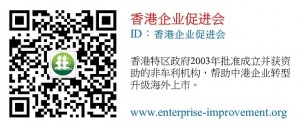Initially, little public information about engagement partners would be available, Watts said, under a PCAOB reproposal that would require disclosure of the identity of the engagement partner in the audit report.
But Watts said the PCAOB has received feedback indicating that over time, a body of information about the engagement partner’s history would be developed.
“For example, the disclosure of the name of the engagement partner, combined with other information compiled over time, could enable [investors] to research the number, size, and nature of companies and industries in which the partner served as the engagement partner,” Watts said.
The PCAOB’s reproposal also would require disclosure in the audit report of the names, locations, and extent of participation of other audit firms involved in the audit, as well as the extent of participation of other persons (whether individuals or companies) not employed by the auditor who performed procedures on the audit.
Board members at Wednesday’s open meeting devoted substantial time to discussing the issue of naming the engagement partner in the audit report. Board member Lewis Ferguson envisioned third-party information providers monitoring and disseminating auditors’ professional track records and informing investors on whether engagement partners have been involved in public disciplinary proceedings, litigation, or restatements.
Ferguson said such information would be useful to investors.
“We certainly know that, increasingly, information is available about other professionals—doctors, lawyers—and that consumers widely use rating services and information services about other professionals,” Ferguson said. “I don’t know why it would be any different for auditors.”
Board member Steve Harris also said such disclosure is common for many professionals, including tax preparers who sign tax returns. PCAOB Chairman James Doty said naming the engagement partner could improve audit quality by reminding auditors of their responsibilities to the public.
But board members Jay Hanson and Jeanette Franzel were skeptical about the benefits that information about the engagement partner would provide for investors.
“Many questions remain unanswered related to potential costs and exposure of auditors to additional liability,” Franzel said.
Hanson and Franzel both said no evidence has been presented to indicate that disclosing the name of the engagement partner improves audit quality or enhances partners’ accountability. Hanson said the board’s reproposing release cites several studies suggesting that naming the engagement partner produces limited or no improvement in audit quality.
In addition, Hanson said the personal liability that could result from naming the engagement partner could result in unnecessary, defensive audit procedures; higher audit costs; and difficulties for recruiting in the auditing profession.
“This could provide a disincentive for the best and the brightest young accountants to become auditors at a time when financial statements are more complicated than ever,” Hanson said.
Cindy Fornelli, executive director of the Center for Audit Quality (CAQ)—which is affiliated with the AICPA—said in a statement that the CAQ supports the PCAOB’s efforts to increase transparency in the audit but does not believe the auditor’s report is the appropriate place to identify the engagement partner.
“Engagement partners already are held accountable to multiple parties including their firms, audit committees, regulators, and investors,” Fornelli said. “There are also important contributions to the audit made by many others beyond the engagement partner, including the firms’ comprehensive quality-control systems.”
The PCAOB is inviting public comment through Feb. 3, and Doty said he would like the board to decide on a standard by the summer of 2014. Comments can be made at the board’s website.
Also on Wednesday the PCAOB adopted amendments that conform PCAOB rules and forms to requirements of the Dodd-Frank Wall Street Reform and Consumer Protection Act, P.L. 111-203. The amendments established PCAOB oversight for audits of brokers and dealers.
—Ken Tysiac is a JofA senior editor.
香港企業促進會是幫助中港企業轉型升級與國際接軌(境外上市)的平臺;除了邀请名家大师参加每年一度的專業管理研討會(PMDP: Professional Management Development Program)外,香港企業促進會特开设《企管名師专栏》定期和不定期地发表企管名师在管理学的前沿研究和经验总结,并摘录部分国际权威机构(如AICPA等)有关企业管治,内控,会计准则,上市,与资本市场接轨,转型升级等最新动态和企業管理的经验和研究报告供会员参考和借鉴。以便提高业界的专业管理水平,更好地落实香港企業促進會“提升企业竞争力 • 促进升级齐增值”的宗旨。









